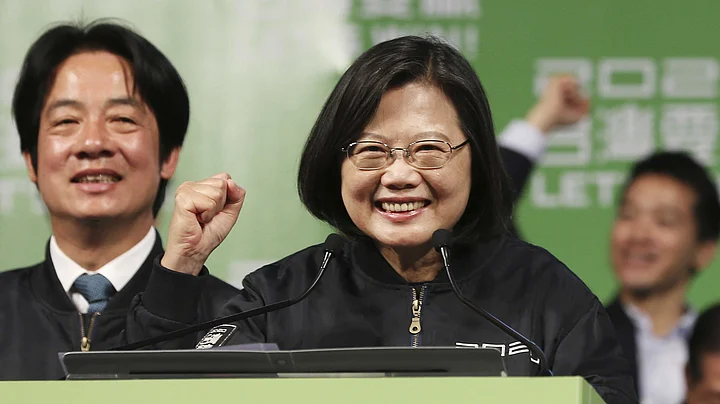Taiwan's independence-leaning President Tsai Ing-wen won a second term in a landslide election victory on Saturday, 11 January, signalling strong support for her tough stance against China.
Tsai soundly defeated Nationalist Party candidate Han Kuo-yu with 57.2 percent of the vote to Han’s 38.6 percent, with 99.75 percent of precincts' votes counted. She wasted no time in warning communist-ruled China, which views Taiwan as a renegade province, not to try to use threats of force against the self-governed island.
“Today I want to once again remind the Beijing authorities that peace, parity, democracy and dialogue are the keys to stability,”Taiwan’s independence-leaning President Tsai Ing-wen
“I want the Beijing authorities to know that democratic Taiwan and our democratically elected government will never concede to threats."
Tsai’s Victory Likely to Prompt More Hostility From Beijing
"I hope that Beijing will show its goodwill," she said.
Taiwan has developed its own identity since separating from China during civil war in 1949 but has never declared formal independence. Beijing still claims sovereignty over the island of 23 million people and threatens to use force to seize control if necessary.
Given China's efforts to isolate Taiwan during Tsai's first term, her victory will likely bring on still more deadlock and pressure from Beijing, she acknowledged.
Tsai said the results of the election proved the Taiwan people are committed to defending their democracy and way of life. Her victory will likely deepen that deadlock and ratchet up pressure from Beijing.
The mood was jubilant at the headquarters of Tsai's Democratic Progressive Party in Taipei, the capital, with supporters cheering as the results were announced. At a gathering in Kaohsiung, where Han is mayor, it was much grimmer, with some wiping away tears.
Han, 62, told disappointed supporters in the southern port city of Kaohsiung that he had called to congratulate Tsai on her victory. He vowed to return to his job as mayor with renewed vigor.
Months of anti-government protests in Hong Kong, a semi-autonomous Chinese territory, have driven home to many in Taiwan the contrast between their democratically governed island and authoritarian, communist-ruled mainland China.
While Han and the Nationalist Party have said Taiwan should be more open to negotiations with China, Tsai and the Democratic Progressive Party insisted that the Hong Kong protests showed the “one country, two systems” approach Beijing has championed for governing both that former British colony and Taiwan is unworkable.
Chinese President Xi Jinping has sought to compel Tsai’s government to endorse Beijing’s insistence that Taiwan is a part of China. Tsai has refused to do so, maintaining that Beijing has no claim over Taiwan while calling for a reopening talks between the sides without preconditions.
Since its transition to full democracy beginning in the 1980s, Taiwan has increasingly asserted its independent identity from China even though it is not recognized by the United Nations or any major nation.
The island exercises all the roles of a sovereign nation, issuing its own passports, maintaining its own military and legal system and serving as a crucial hub in the global high-tech supply chain.
Tsai also faces challenges in trying to reform the government and economy, create jobs and raise wages.
“We will work even harder to build on our achievements of the past four years,”Taiwan’s independence-leaning President Tsai Ing-wen
“We will constantly remind ourselves our administration must be clean, confident and efficient.”
She added, “Of course we will work to keep our country safe and defend our sovereignty."
(Published in an arrangement with Associated Press)
(At The Quint, we question everything. Play an active role in shaping our journalism by becoming a member today.)
